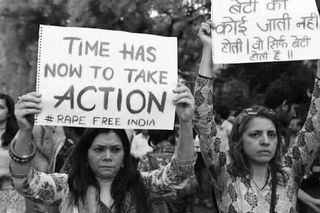
Proof Sex Education in Schools, If Done Well, Can Reduce Sexual Violence
A South African program lowered the chances that students would force sex on someone even four years later.

A new study of a sex education program in South African schools has concluded that students, after taking the module, were significantly less likely to force sex on someone else — an effect that held true over the four years the students were followed.
Southern Africa has some of the highest rates of sexual assault in the world, with 20% of adolescent girls and boys reporting that they have been forced to have sex. In many cases, they are also the perpetrators: In one survey, 12% of boys and 5% of girls admitted they have forced someone else to have sex.
While Indian stats are much lower, it is widely acknowledged by experts that the country’s incidence of sexual violence is likely much higher than is reported. Indeed, expert polls and surveys of minor girls, boys and parents, reveal that no one, at home or abroad, feels girls and women are particularly safe in India. (That boys and men also experience sexual assault has gone unacknowledged.)
Which makes this case study particularly relevant. The South African program reached more than 1,000 students in sixth standard, many of whom were not yet sexually active. It consisted of 12 one-hour, theory-based lessons, which addressed broad issues of sexual health, such as HIV and safe sex behaviors, as well as issues of sexual values: exploring what healthy relationships look like and busting patriarchal myths, such as those that hold women responsible for sexual assault because of their clothes.
The study then followed students over the next four years, surveying them regularly about their sexual activity, including whether they had experienced vaginal intercourse against their will or forced it on someone else against their wishes.
The results show the specialized sex education program reduced perpetration of forced sex: Students who had received the specific sex education program were 3% less likely to report they forced someone to have sexual intercourse over the course of four years, compared to children who had not received the course. The intervention was more effective in reducing perpetrator behavior among boys, who were also more likely than girls to report having forced sex on someone.
“The fact that adolescents who received only 12 hours of intervention in grade 6, when few reported sexual experience, were less likely to report perpetrating and experiencing forced sex long after the intervention is extraordinary,” write the authors of the study published in JAMA Network Open.
The results make a case for reaching school students at younger ages with sex education that covers topics relating to healthy relationships and consent, says the study’s lead author John B. Jemmott III, a professor of communication and psychiatry at the Annenberg School for Communication and the Perelman School of Medicine at the University of Pennsylvania.
“What this study suggests is that perhaps we should begin earlier, in middle school, with interventions that can have long-lasting effects into secondary school,” Jemmot says. “Adopting this evidenced-based curriculum in South African schools would advance efforts to ensure the wellbeing of young South African adolescents.”
Sadly, in India, recent government efforts to improve children’s and women’s safety have been half-baked and punitive, destining them to be ineffectual as a deterrent; new laws ostensibly aimed at curbing sexual violence don’t recognize boys as equal possible victims of sexual assault, put girls and women at risk of greater violence, and don’t acknowledge or address the fact that minors are often perpetrators of sexual violence against other minors.
If only there was a more effective solution — like sex education in schools that’s been proven to prevent sexual assault — that we could learn from.
Related


Watching Section 377: The Single Woman
